Politics
Iraqi PM-led coalition tops Iraq election with 46 seats, says commission
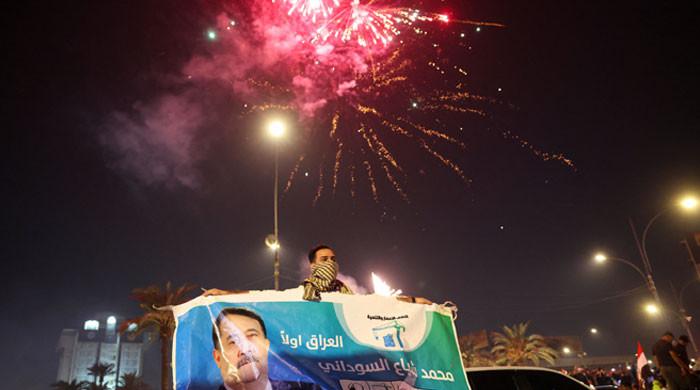
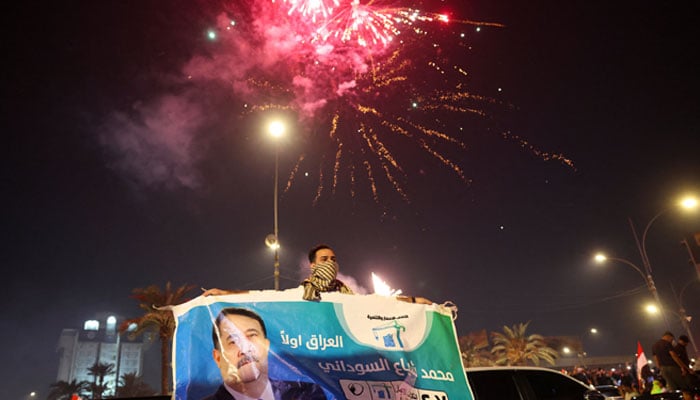
- Election turnout stands at 56 percent, says officials.
- Taqaddum Party secures 27 seats in parliamentary vote.
- Next govt faces challenge of managing armed groups.
BAGHDAD: Prime Minister Mohammed Shia al-Sudani’s political bloc won the most seats in Iraq’s election, final election results showed on Monday, but a new government could still be months away due to wrangling to build a majority.
The next government will need to navigate the delicate balance between US and Iranian influence. It must manage dozens of armed groups that are closer to Iran and answerable more to their own leaders than to the state, all while facing growing pressure from Washington to dismantle those militias.
Sudani’s list came in first with 46 seats in the 329-member parliament, the election commission said.
The Taqaddum Party, which draws support from Iraq’s west and north, won 27 seats. Former Prime Minister Nouri al-Maliki’s State of Law group won 29 seats, and the Kurdistan Democratic Party (KDP) secured 26 seats, according to the results issued by the commission.
The final total turnout in Iraq’s parliamentary election reached 56.11%, according to the commission.
Parties in Iraq’s ruling alliance said after the results were announced that they consider themselves the largest bloc in parliament. In a statement issued after a meeting attended by Sudani, the alliance said it would move ahead with nominating a prime minister for the next phase.
Sudani had been seeking a second term in last week’s election, but many disillusioned young voters saw the vote simply as a vehicle for established parties to divide Iraq’s oil wealth.
However, he has tried to cast himself as a leader who could make Iraq a success after years of instability, arguing he had moved against established parties that brought him to power.
Politics
UN Security Council approves US-backed resolution supporting Trump’s Gaza proposal
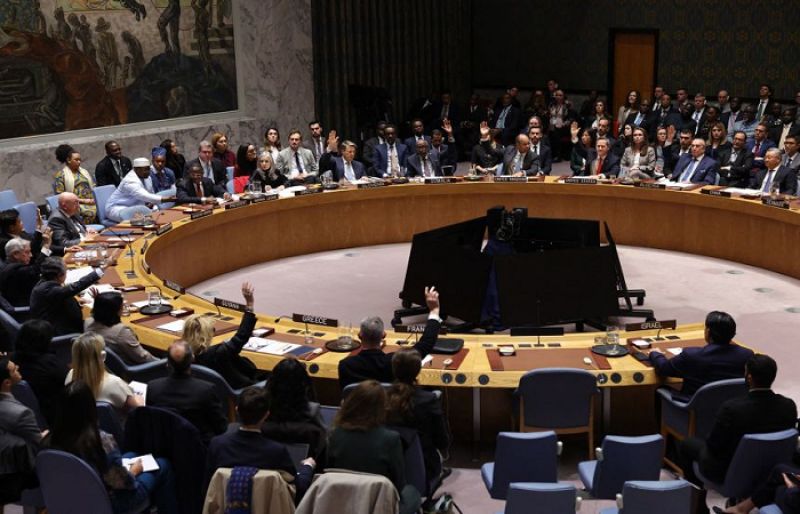
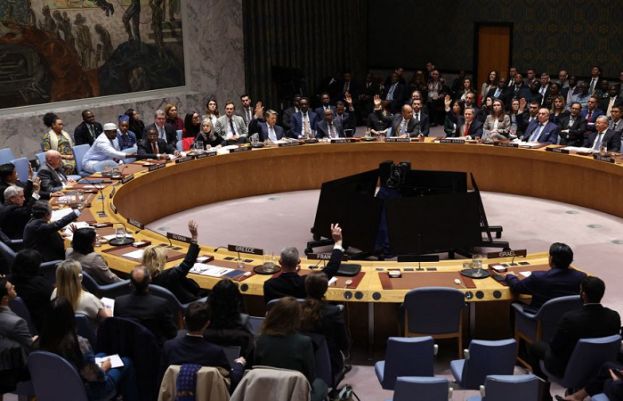
The UN Security Council on Monday approved a US-drafted resolution backing President Donald Trump’s plan to end the war in Gaza and authorizing the deployment of an international stabilization force in the Palestinian territory.
Israel and Hamas last month endorsed the first phase of Trump’s 20-point Gaza proposal — a cease-fire in their two-year conflict and a hostage-release agreement — but UN approval is viewed as essential for legitimizing a transitional governing body and assuring countries considering contributing troops.
According to the text, UN member states may participate in the Trump-chaired Board of Peace, envisioned as an interim authority tasked with overseeing Gaza’s reconstruction and economic revival.
The resolution also authorizes the establishment of an international stabilization force responsible for demilitarizing Gaza, including dismantling weapons and eliminating militant infrastructure.
Hamas, however, reiterated in a statement that it will not give up its arms, asserting that its struggle against Israel constitutes legitimate resistance — a position that could set the group on a collision course with the newly mandated force.
“The resolution imposes an international guardianship over the Gaza Strip, something our people and factions reject,” Hamas said in its statement following the vote.
US Ambassador to the UN Mike Waltz said the measure — which includes Trump’s full 20-point plan as an annex — “lays out a viable path toward Palestinian self-determination … where rockets are replaced by olive branches and a political horizon can finally emerge.”
“It breaks Hamas’ hold, and it ensures Gaza can rise free from the shadow of terror — more stable, more prosperous, and more secure,” Waltz told the Security Council ahead of the vote.
Russia, which had earlier hinted it might veto the resolution, ultimately abstained, allowing it to pass. China also abstained, with both delegations criticizing the limited role envisioned for the UN in Gaza’s future.
“Essentially, the council is giving its blessing to a US initiative based solely on Washington’s assurances, handing full control of the Gaza Strip to the Board of Peace and the ISF, whose modalities we still know nothing about,” Russian ambassador Vasily Nebenzya said after the vote.
The Palestinian Authority, meanwhile, welcomed the resolution and said it is prepared to help implement it. Diplomats noted that the PA’s endorsement last week played a crucial role in preventing a Russian veto.
Trump hailed the vote as “a moment of truly historic proportion” in a social-media post, adding that the names of Board members — along with “many more exciting announcements” — would be unveiled in the coming weeks.
‘Pathway’ to statehood
The resolution has proven controversial in Israel because it references a future possibility of statehood for the Palestinians.
The resolution’s text says that “conditions may finally be in place for a credible pathway to Palestinian self-determination and statehood” once the Palestinian Authority has carried out a reform program and Gaza’s redevelopment has advanced.
“The United States will establish a dialogue between Israel and the Palestinians to agree on a political horizon for peaceful and prosperous coexistence,” it says.
Prime Minister Benjamin Netanyahu, under pressure from right-wing members of his government, said on Sunday that Israel remained opposed to a Palestinian state and pledged to demilitarise Gaza “the easy way or the hard way.”
Politics
UN Security Council adopts US resolution on Trump’s Gaza plan
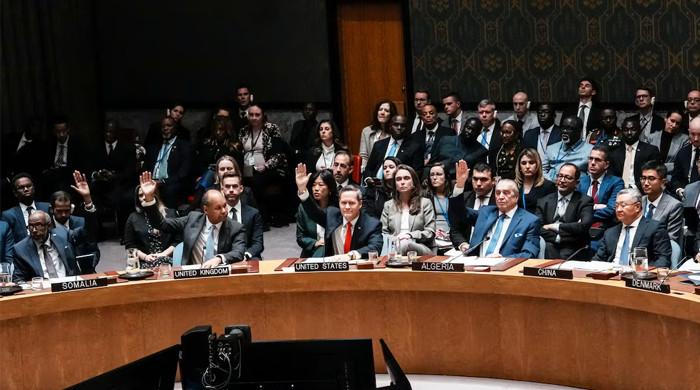
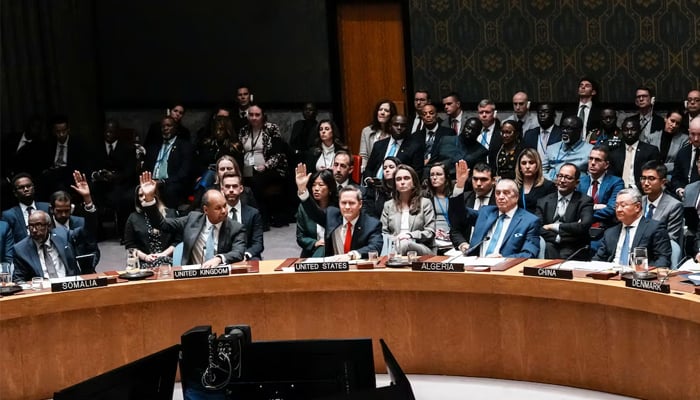
- Hamas rejects resolution, insists it will not disarm.
- Russia and China abstain from vote on UN resolution.
- Trump hails vote as “moment of true Historic proportion”.
The UN Security Council on Monday voted to adopt a US-drafted resolution endorsing President Donald Trump’s plan to end the war in Gaza and authorising an international stabilisation force for the Palestinian enclave.
Israel and the Palestinian resistance group Hamas agreed last month to the first phase of Trump’s 20-point plan for Gaza — a ceasefire in their two-year war and a hostage-release deal — but the UN resolution is seen as vital to legitimising a transitional governance body and reassuring countries that are considering sending troops to Gaza.
The text of the resolution says member states can take part in the Trump-chaired Board of Peace envisioned as a transitional authority that would oversee reconstruction and economic recovery of Gaza. It also authorises the international stabilisation force, which would ensure a process of demilitarising Gaza, including by decommissioning weapons and destroying military infrastructure.
Hamas, in a statement, reiterated that it will not disarm and argued that its fight against Israel is legitimate resistance, potentially pitting the fighter group against the international force authorised by the resolution.
“The resolution imposes an international guardianship mechanism on the Gaza Strip, which our people and their factions reject,” Hamas said in its statement, issued after the adoption of the resolution.
Mike Waltz, the US ambassador to the UN, said the resolution, which includes Trump’s 20-point plan as an annex, “charts a possible pathway for Palestinian self-determination … where rockets will give way to olive branches and there is a chance to agree on a political horizon.”
“It dismantles Hamas’ grip, it ensures Gaza rises free from terror’s shadow, prosperous and secure,” Waltz told the council ahead of the vote.
Russia, which holds a veto on the Security Council, earlier signaled potential opposition to the resolution but abstained from the vote, allowing the resolution to pass.
The UN ambassadors of Russia and China, which also abstained, complained that the resolution does not give the UN a clear role in the future of Gaza.
“In essence, the council is giving its blessing to a US initiative on the basis of Washington’s promises, giving complete control over the Gaza Strip to the Board of Peace and the ISF (international stabilisation force), the modalities of which we know nothing about so far,” Russian ambassador Vasily Nebenzya told the council following the vote.
The Palestinian Authority issued a statement welcoming the resolution, and said it is ready to take part in its implementation. Diplomats said the authority’s endorsement of the resolution last week was key to preventing a Russian veto.
Trump celebrated the vote as “a moment of true Historic proportion” in a social media post. “The members of the Board, and many more exciting announcements, will be made in the coming weeks,” Trump wrote.
‘Pathway’ to statehood
The resolution has proven controversial in Israel because it references a future possibility of statehood for the Palestinians.
The resolution’s text says that “conditions may finally be in place for a credible pathway to Palestinian self-determination and statehood” once the Palestinian Authority has carried out a reform program and Gaza’s redevelopment has advanced.
“The United States will establish a dialogue between Israel and the Palestinians to agree on a political horizon for peaceful and prosperous coexistence,” it says.
Prime Minister Benjamin Netanyahu, under pressure from right-wing members of his government, said on Sunday that Israel remained opposed to a Palestinian state and pledged to demilitarise Gaza “the easy way or the hard way.”
Politics
Trump signals green light for Saudi F-35 deal ahead of key Mohammed bin Salman talks
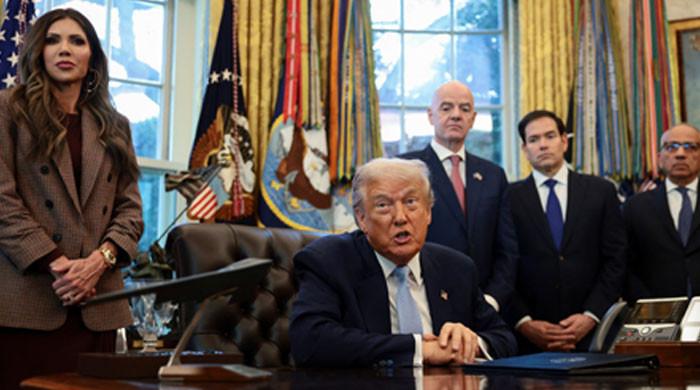
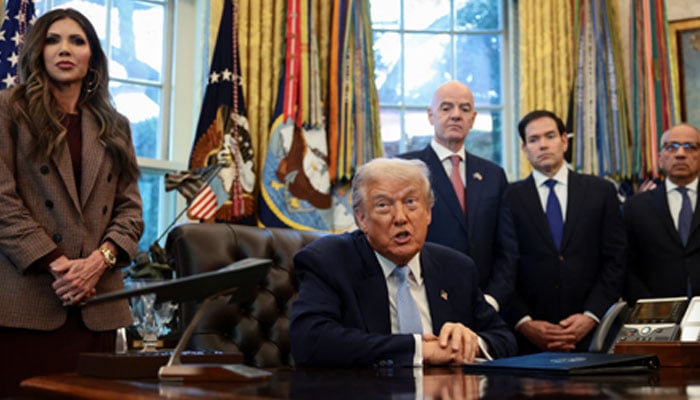
- Trump says “we’ll be selling the F-35s” during Oval Office remarks.
- Sale marks major policy shift, could test Israel’s military edge.
- KSA wants up to 48 jets in Pentagon-cleared multibillion-dollar deal.
President Donald Trump said on Monday he plans to approve the sale of US-made F-35 fighter jets to Saudi Arabia, speaking a day before he hosts Saudi Crown Prince Mohammed bin Salman (MBS) for a day of diplomacy.
“I will say that we will be doing that,” Trump told reporters in the Oval Office. “We’ll be selling the F-35s.”
A sale would mark a significant policy shift, potentially altering the military balance in the Middle East and testing Washington’s definition of maintaining Israel’s “qualitative military edge.”
Saudi Arabia has requested the purchase of as many as 48 F-35 fighter jets, a potential multibillion-dollar deal that has cleared a key Pentagon hurdle ahead of bin Salman’s visit, Reuters reported early this month.
The Saudis have long been interested in Lockheed Martin’s fighter. A senior White House official told Reuters before Trump spoke that the president wanted to talk to the crown prince about the jets, “then we’ll make a determination.”
Trump´s approval comes despite a New York Times report that US officials had raised concerns that superpower rival China could acquire the sophisticated warplane’s technology if the sale to Saudi Arabia went through.
The US has so far only allowed the sales of F-35s to its closest allies, including a number of European NATO allies and Israel.
Washington kicked Turkey out of the F-35 programme in 2019 because Ankara’s purchase of a Russian air defence system sparked fears that Moscow could acquire the plane’s technology through the back door.
AI, nuclear on agenda
The crown prince’s, widely known by his initials MBS, visit to the White House for talks with the US president aims to deepen decades-old cooperation on oil and security while broadening ties in commerce, technology and potentially even nuclear energy.
It will be the first trip by the crown prince to the US since 2018.
Trump is seeking to cash in on a $600 billion Saudi investment pledge made during Trump’s visit to the kingdom in May. He steered clear of mentioning human rights concerns during that trip and is expected to do so again.
The Saudi leader is seeking security guarantees amid regional turmoil and wants access to artificial intelligence technology and progress toward a deal on a civilian nuclear programme.
Focus on defence deal
The Washington and the Riyadh have long had an arrangement for the kingdom to sell oil at favourable prices and for the superpower to provide security in exchange.
That equation was shaken by Washington’s failure to act when Iran struck oil installations in the kingdom in 2019. Concerns resurfaced in September, when Israel struck Doha, Qatar, in an attack it said targeted members of Palestinian group Hamas.
In the aftermath, Trump signed a defence pact with Qatar via executive order. Many analysts, diplomats and regional officials believe the Saudis will get something similar.
Saudi Arabia has sought a defence pact ratified by the US Congress in recent negotiations. But Washington has made that contingent on the kingdom normalising ties with Israel.
Riyadh has in turn linked that to a commitment from Israel’s government, the most right-wing in its history, to Palestinian statehood. Israeli Prime Minister Benjamin Netanyahu, who agreed to a Trump-brokered ceasefire with Hamas in Gaza last month after two years of war, on Sunday reaffirmed his staunch opposition to Palestinian independence.
A Trump executive order on defence similar to the pact with Qatar would fall short of the defence agreement the Saudis have sought. But Alghashian said it would “be a step on the way, part of the process, not the end of the process.”
A Western diplomat based in the Gulf summed up the dynamic: “Trump wants normalisation and Saudi wants a full defence pact, but the circumstances don’t allow. In the end, both sides will likely get less than they want. That’s diplomacy.”
Dennis Ross, a former Middle East negotiator for Democratic and Republican administrations now at the Washington Institute for Near East Policy, said he expects an executive order that would call for the US and the Saudis “to immediately consult on what to do in response to the threat” while not committing Washington to actively come to the defence of Riyadh.
“That could run the gamut of providing a range of different assistance, replacing arms, deploying defensive missile batteries like THAAD or Patriot, deploying naval forces with a Marine unit – to actively taking part in the combat in an offensive not only defensive manner,” he said.
Deal key amid regional rivalry
Riyadh has also been pressing for deals in nuclear energy and artificial intelligence under its ambitious Vision 2030 plan to diversify its economy and strengthen its position relative to regional rivals.
Securing approval to acquire advanced computer chips would be critical to the kingdom’s plans to become a central node in global AI and to compete with the United Arab Emirates, which in June signed a US multibillion-dollar data centre deal that gave it access to high-end chips.
MBS also wants to strike an agreement with Washington on developing a Saudi civilian nuclear programme, part of his effort to diversify from oil.
Such a deal would unlock access to US nuclear technology and security guarantees and help Saudi Arabia level up with the UAE, which has its own programme, and traditional foe Iran.
But progress on a US deal has been difficult because the Saudis did not want to agree to a US stipulation that would rule out enriching uranium or reprocessing spent fuel – both potential paths to a bomb.
Ross said he expected an announcement of an agreement on nuclear energy, or at least a statement on progress towards one.
-

 Tech1 week ago
Tech1 week agoFrom waste to asset: Turning ethanol production CO₂ into jet fuel
-

 Tech3 days ago
Tech3 days agoNew carbon capture method uses water and pressure to remove CO₂ from emissions at half current costs
-
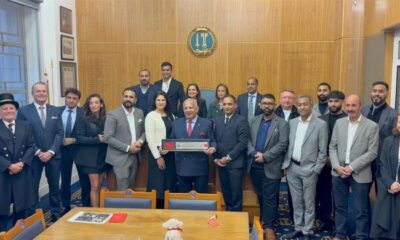
 Politics4 days ago
Politics4 days agoBritish-Pakistani honoured for transforming UK halal meat industry
-

 Sports2 days ago
Sports2 days agoTexas A&M officer scolds South Carolina wide receiver after touchdown; department speaks out
-
Sports1 week ago
College football winners and losers: The catch of the year saves Indiana
-
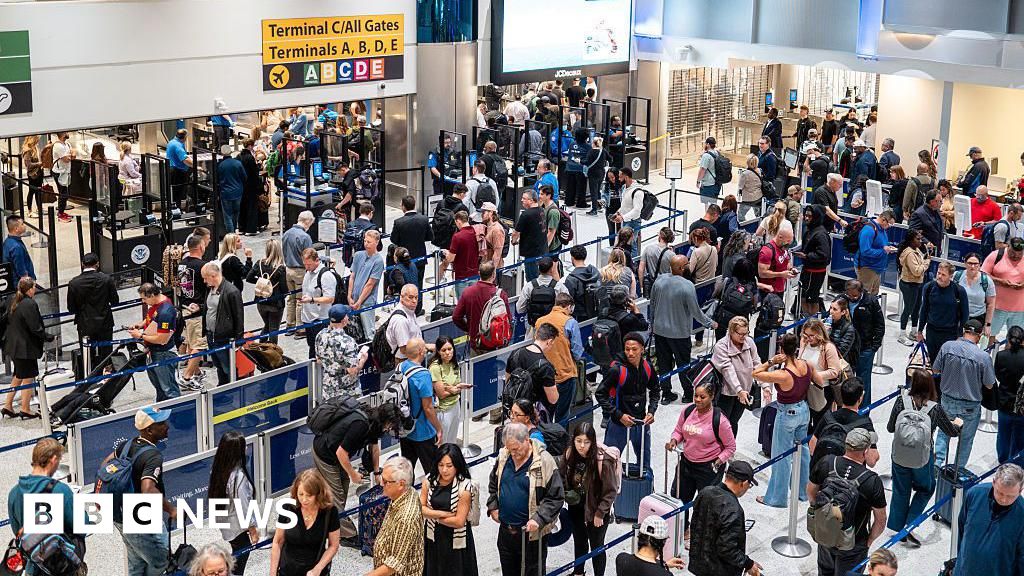
 Business1 week ago
Business1 week agoMore than 1,000 flights cancelled as US air traffic cuts enter second day
-

 Tech1 week ago
Tech1 week agoSecurity flaws in portable genetic sequencers risk leaking private DNA data
-

 Sports1 week ago
Sports1 week agoSteelers vs. Chargers (Nov 9, 2025) Live Score – ESPN






